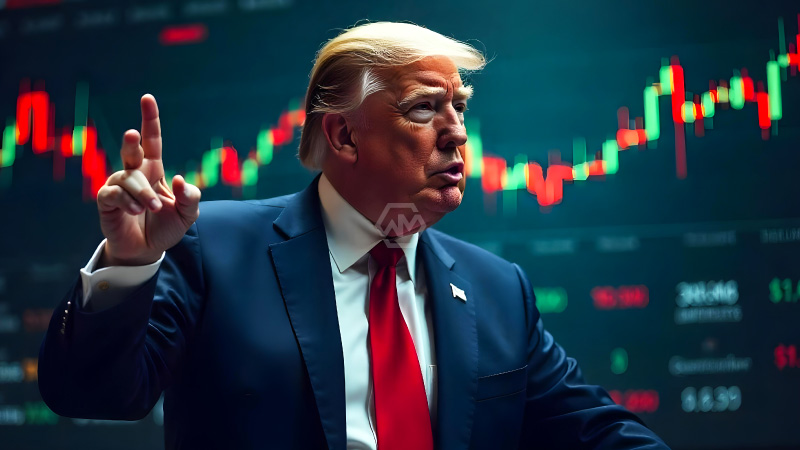- U.S. stock futures tumble as tech stocks like Nvidia, Apple, and Microsoft drop premarket.
- Oil prices soar above $74 per barrel amid global trade uncertainty.
- European markets also decline, with DAX and CAC 40 losing more than 2%.
Global stock markets are feeling the heat after President Trump‘s decision to impose new tariffs on goods from China, Canada, and Mexico. Futures for U.S. indices like the Dow, S&P 500, and Nasdaq-100 plummeted, with tech stocks particularly hard-hit.
Meanwhile, the global oil market is experiencing a different trend, with prices surging more than 2%. U.S. crude reached over $74 per barrel as investors brace for potential disruptions in global trade.
Tariffs Shake Up Global Markets, Fuel Inflation Concerns in the U.S.
U.S. stock futures are facing significant losses today, particularly with tech-heavy indices like the Nasdaq-100 seeing drops of over 1.5%. Investors are reacting to President Trump’s latest move to raise tariffs on Chinese, Canadian, and Mexican imports. Shares of major tech companies like Nvidia, Apple, and Microsoft are suffering, with premarket drops as high as 3.2%. This raises concerns about the broader impact on the tech sector, which is a key driver of the U.S. economy.
Oil markets have been impacted as well, with prices climbing more than 2%. U.S. crude futures have surged above $74 per barrel, driven by fears of disruptions in global trade. While the increase in oil prices could help some sectors, it also adds to the broader inflationary pressure already building in the economy.
European markets have mirrored the U.S. trend, with the DAX and CAC 40 indexes both dropping by more than 2%. The ripple effects of Trump’s tariff moves are especially pronounced in Europe, where economies are closely tied to U.S. trade policy. The anxiety surrounding trade relations is expected to persist, as these tensions could have lasting implications for growth.
BNP Paribas has forecast that the tariffs will lead to an inflationary shock in the U.S. They expect consumer prices to rise significantly, and the economic growth rate to slow. The situation has led to speculation that the Federal Reserve may adopt a more cautious stance, with further interest rate hikes uncertain as they navigate the economic fallout.
The market reactions to Trump’s tariff decisions have highlighted the fragility of the global economy amid rising protectionism. The future direction of the markets will depend heavily on how trade relations evolve.
“These downturns are driven by investor anxiety about the broader impact of tariffs on the global economy,” said Naeem Aslam, chief investment officer at Zaye Capital Markets.



